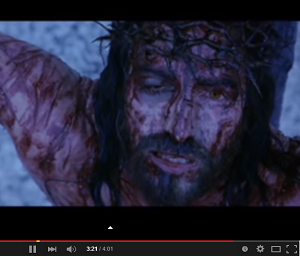
The passion of Christ for atheists
Read and then re-read, always with some prejudice, Nietzsche’s book “The Antichrist” in the first reading was materialistic and was reading Nietzsche as “irrationalism”, and recently as a Christian because it would be condoning the biggest “enemy” of human salvation .
materialistic and was reading Nietzsche as “irrationalism”, and recently as a Christian because it would be condoning the biggest “enemy” of human salvation .
Should have first read “The Birth of Tragedy or Hellenism and pessimism”, but actually lost prejudice when I met Oswaldo Giacoia Jr and he explained the life of Nietzsche, in particular, his pastor father and a Lutheran pietistic mother, this explains a lot of things.
Can be pretentious, but I think you can read it from the aesthetic, since it states: “. Only as an aesthetic phenomenon that existence and the world be justified forever” (Nietzsche, 1992, p. 47) and this may be an essential part of your thinking and remember here the writer Victor Hugo: “Art save the world”, see what you think of Greek tragedy.
What does this have to do with the passion of Christ, is his analysis of the role of “chorus” in the tragedy, and says the problem becomes severe in Euripides to delete the choir, destroys the tragedy and to involve the reason, eliminates one of his plays everything that is not found in life, but there is a choir. This is how many understood it as “irrational”, but the reason is in check.
But to completely eliminate the choir, Euripides did not consider the cognitive function, namely, that to know what the hero was thinking and so he, but eliminated the very information was transmitted to the public. Jacques Rancière apronfundou this in “The emancipation of the beholder,” or we could say the reintroduction of the choir.
It is the choir and not the confidant (Nietzsche cites the example of chaperone), whom the tragic hero is revealed, credibly way, your fears and deepest aspirations.
Christ calls intimately in various passages of God father, called the father of Abba would Dad or Daddy, in his prayer taught to the “choir” it creates the Our Father.
However the crucifixion he distances himself from God and closer to the human choir and says, “My God, My God, why hast thou forsaken me,” is your abandonment to man and his condition.
It is the tragedy of the crucifixion of Christ that invokes the choir of humanity, here He is the man.
NIETZSCHE, Friedrich, The Birth of Tragedy (Trans. Douglas Smith), Oxford University Press, 2008: pages in portuguese edition in text.









